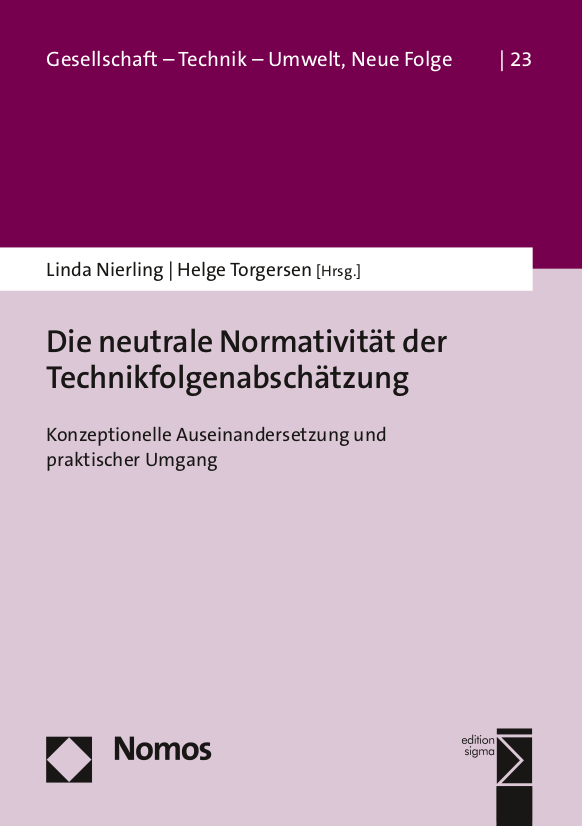Normativity of technology assessment
In times of sharper political and economic contrasts and accelerated technological development, technology assessment (TA) faces the challenge of dealing with its normative foundations. Scientists try to do so in the recent publication “Die neutrale Normativität der Technikfolgenabschätzung. Konzeptionelle Auseinandersetzung und praktischer Umgang” (The neutral normativity of technology assessment. Conceptual discussion and practical handling).
Linda Nierling, head of the ITAS research group „Digital Technologies and Societal Change“ and Helge Torgersen from the Institute of Technology Assessment (ITA) in Vienna publish this volume.
How should TA position itself?
What is the normative framework of TA, is it the same everywhere, or does it differ depending on the topic, social task, or country and political culture? How should TA deal with normative demands that are presented from the outside, i.e., from political actors, citizens, or sponsors? And how should it deal with those presented from the inside, from TA itself (internationalization, self-image, theoretical concepts, communication strategies)? What are the options for TA to identify and process normative claims? How can and should it position itself in the concert of conflicting political interests and world views? Is “neutral” expertise an obstacle or rather a help and can it (still) exist at all?
The authors try to answer these and other questions in this volume. It includes contributions from ITAS researchers Armin Grunwald, Julia Hahn, Marcel Krüger und Philipp Frey. (22.09.2020)
Bibliographic data:
Nierling, Linda; Torgersen, Helge (eds.)
Die neutrale Normativität der Technikfolgenabschätzung. Konzeptionelle Auseinandersetzung und praktischer Umgang. Baden-Baden: Nomos Verlag, 2020, 196 S., ISBN: 978-3-8487-6648-2
(Gesellschaft - Technik - Umwelt)
Publisher information


